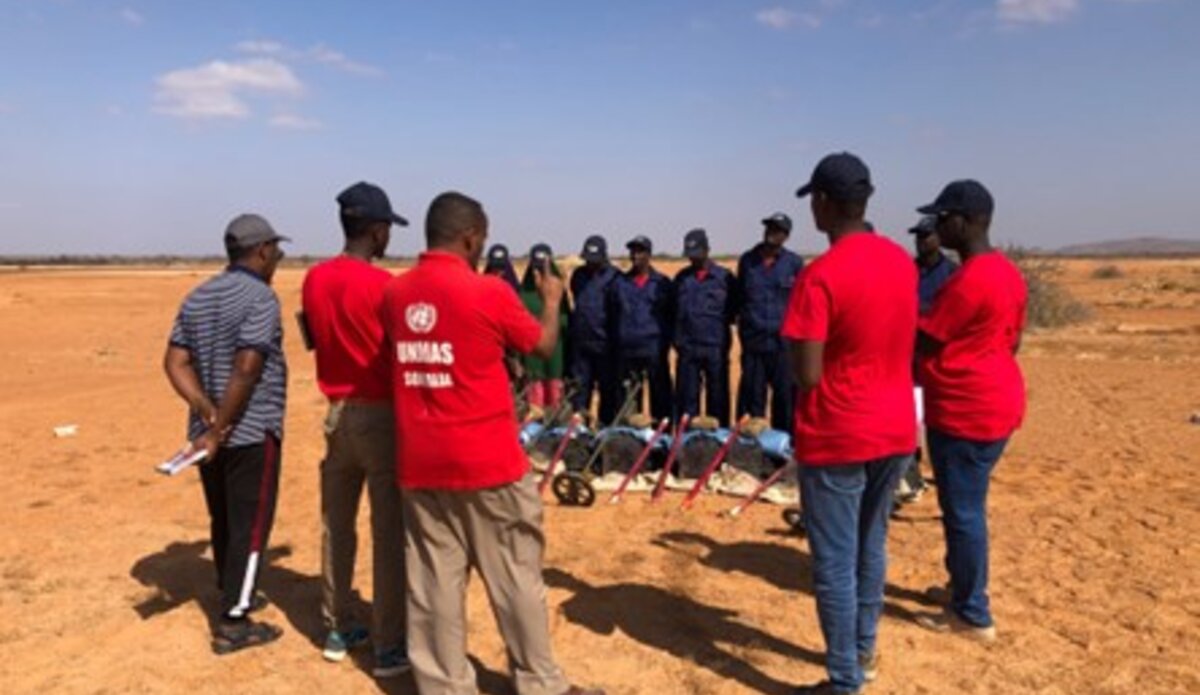Press statement April 2024
UNMAS WELCOMES GOVERNMENT OF JAPAN’S CONTRIBUTION TO HUMANITARIAN MINE ACTION IN SOMALIA
Mogadishu, April 2024 – The United Nations Mine Action Service (UNMAS) welcomes the donation of $240, 000 from the Government of Japan to support the mine action sector in Somalia.
The support will go towards UNMAS’s ‘Humanitarian mine action to promote peace and safety in Somalia’ project, which aims to mitigate the threat posed by landmines and explosive remnants of war (ERW) to vulnerable populations around the country.
Specifically, the funds will contribute to further enhancing the protection of civilians from the impact of explosive ordnance through supporting the Federal Government of Somalia to effectively manage the mine action sector through capacity building of the Somali Explosive Management Authority (SEMA); the authority responsible for managing the mine action sector.
“We are very grateful for the continued support of the Government of Japan to support the Federal Government of Somalia to increase safety and protect its population from the dangers of explosive hazards,” said UNMAS’ Chief of Mine Action in Somalia, Justin Smith. “National mine action capacity development is an essential component of UNMAS's work in Somalia, contributing to the overarching goal of creating a safer, more stable environment for all.”
Impact on Somalis
Landmines and ERW continue to endanger the lives of the Somali people, causing severe accidents and injuries. Humanitarian mine action partners have recorded 1,390 civilian casualties due to landmines and ERW incidents since 2004.
The explosive contamination not only impacts the safety of communities but also hampers economic development as they restrict access to land and resources and prevent socio-economic activities. Enhancing the Humanitarian mine action is, therefore, critical for the safety of the civilian population and is an essential enabler of humanitarian assistance and stabilization.
The Somali Explosive Management Authority
National capacity is crucial to monitor the effectiveness of mine action interventions in Somalia and to contribute to enhancing the safety and security of communities. Due to recent military operations, vast areas of Somalia may be exposed to new explosive contamination and as a result, the Federal Government of Somalia will need to ensure an effective humanitarian mine action response that protects civilians and reduces the dangers posed by newly contaminated areas.
UNMAS will conduct activities to support the Somali Explosive Management Authority at the Federal level in Mogadishu, and throughout the Federal Member States, to strengthen and sustain their technical and management capability to effectively coordinate humanitarian mine action interventions in Somalia. The funds will be used to support training and capacity-building to facilitate the transfer of knowledge and skills in organizational and managerial competencies as well as enhancing effective responses to explosive threats.
Treaty obligations
The Government of Somalia, which has been a State Party to the Anti-Personnel Mine Ban Convention (APMBC) since 2012, was granted a five-year extension of applicable mine clearance obligations to 2027.
The "Humanitarian mine action to promote peace and safety in Somalia" project is expected to support Somalia in implementing their obligations outlined in these conventions, including regularly reporting on progress against treaty compliance enhancing Somalia’s commitment to finish clearance of all known contaminated areas on time and to build institutional and operational capacity to coordinate and oversee the implementation of humanitarian mine action activities in the country.
*****
For further information, please contact:
UNMAS
- Mr. Justin Smith, UNMAS Somalia, Chief of Mine Action Programme, Mogadishu, smith84@un.org
- Ms. Camille Aubourg, UNMAS Somalia, Senior Programme Officer, Mogadishu, camille.aubourg@un.org

